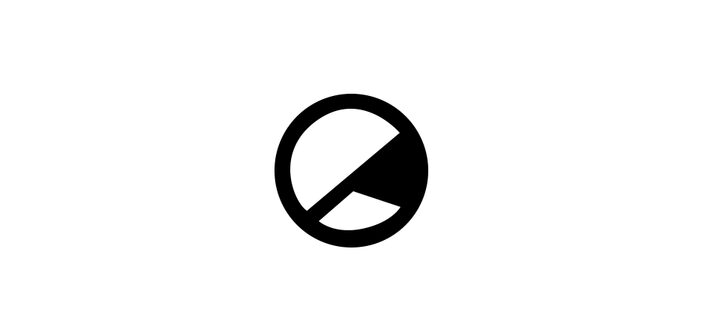Unapologetically bold and undeniably entertaining, DC's latest outing is a fun-filled adrenaline ride with a few stumbles along the way.
-
8
Harnessing the proverb that it is ‘more fun being the bad guy’, Birds of Prey excels in its anti-hero spin on Harley Quinn (Margot Robbie) with a delightful, psychotic energy. While it may struggle at times with pacing issues and fully recognising the potential of its cast and world, Cathy Yan’s film ultimately proves a successful romp that only extends DC’s recent hot streak.
You can see Birds of Prey as DC’s response to Marvel’s Deadpool. Both share similar dark humour, a morally faulty ‘protagonist’, and play around with different aspects of narrative composition, helping distinguish them from more run-of-the-mill comic-book movies. Birds of Prey isn’t a conventional, linear story. Instead, the film is shaped by the character that it is framed around – one Harley Quinn. In her second film after Suicide Squad, Quinn’s mental instability becomes a prism which the film uses to justify its unreliable narration and breaks from linearity – two aspects which work on a comedic level. The erratic nature of the storytelling (and Harley’s unique perspective) allows for great insight into the character, with an absurdist commentary provided against the hellscape of unfolding events. This works particularly well when Quinn fails to recognise her own contributions to the ensuing chaos, maintaining a childish innocence juxtaposed against a comical outpouring of immoral acts. As an anti-hero/anti-villain Quinn works well, with more depth than Deadpool due to the intimate relationship we are forced into having with her.
Harley is just one of many characters in Birds of Prey; she isn’t the only charismatic female character either. From the onset there is a strong feminist undertone, with five distinctive, diverse women driving the narrative. All of the film’s male characters have some sort of hand in causing the downfall of a female character, too. This may seem like a radical approach, but it is a welcome change and fairly potent statement against the prevailing representation of women in media. Admittedly, the message hits with the subtlety of a sledgehammer, but it makes a point without seeming like a complete diversion from the film’s main draw as a comic-book adaptation.
A violent, over-the-top approach defines the stories of Quinn, Huntress (Mary Elizabeth Winstead) and Black Canary (Jurnee Smollett-Bell). The more subdued presence of Renee Montoya, a Gotham City detective, helps give the narrative a sense of variation as well as preventing it from veering too far off the beaten track. It goes without saying that strong characters need strong performances. The film really wouldn’t work without Margot Robbie – the actress is a perfect fit as Quinn. Robbie understands the fundamentals of the character, navigating her highs and lows with charisma and charm. Smollett-Bell’s Black Canary is another stand-out, a more complex, deeper character than the script’s presentation of Quinn. Canary is probably the most ‘realistic’ of the bunch, never straying into caricature. Smollett-Bell is a delight.
Another element of Birds of Prey that works particularly well is the interaction between the fight scenes (impressively choreographed) and a terrific soundtrack. The film is all about having fun, and the fight scenes are incredibly creative. Some of these stunts are so audacious and absurd in their creation – they embody the chaotic energy that Yan’s film thrives on. Whenever the carnage kicks off, a rip-roaring song blasts out in accompaniment; these scenes are vibrant in all aspects. The soundtrack is full of punchy tracks, all sung by capable female artists who help create a solidified sense of female identity across the board. Birds of Prey seems ready to tackle patriarchy not in just its narrative and casting, but in all its creative components.
The pacing at times feels inconsistent, an issue caused by the non-linear stylings. Harley often sidetracks the momentum of the story and during these moments Birds of Prey stagnates, especially when the comedy is lacking. It’s also a shame that Ewan McGregor feels wasted in the film. His henchman carries out most of the villainy while McGregor’s Roman Sionis is more a man of words than actions. Sure, he throws a few tantrums and is a full-blown misogynist, one the story needs to emphasise its critique on male attitudes. Still, Sionis (aka Black Mask) never feels like a match for those he’s facing off against. Ali Wong appears in a small role, but the stand-up comedian isn’t given anywhere near enough to do.
Birds of Prey has split audiences with a divide between those who love its crazy-fun style and feminist credo, and those who find the whole affair shallow and unjustified. As a work of entertainment, you can hardly deny how enjoyable it is. While it sometimes rambles on in sections and goes down some extreme paths, the Margot Robbie vehicle has enough confidence in its convictions to see it through. Its take-no-prisoners feminism is bold, fresh and exciting – I wouldn’t expect anything less from a story narrated by Harley Quinn.
Birds of Prey, directed by Cathy Yan, is distributed in the UK by Warner Bros., certificate 15.




